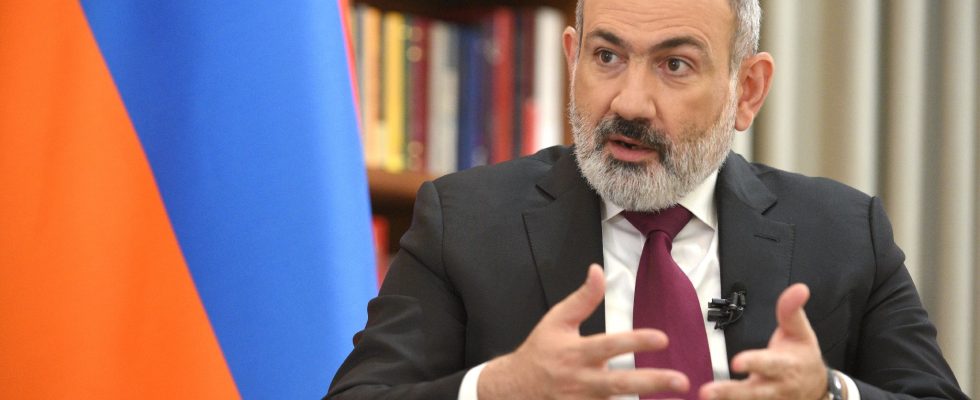By 60 votes to 22, and after brief debates, the Armenian Parliament approved on Tuesday October 3 the ratification of the Rome Statute, the founding text of the International Criminal Court (ICC). 24 years after signing the text, and delaying its definitive accession, the country finally accepted the jurisdiction of this jurisdiction based in The Hague.
A clear and unambiguous signal, a few days after the separatist province of Nagorno-Karabakh gave in to attacks from Azerbaijan. With this decision, Armenia moves a little further away from Moscow and turns towards the West.
A threat to Vladimir Putin
The diametrically opposed reactions of France and Russia are eloquent. While Foreign Minister Catherine Colonna, traveling to Yerevan during the Parliament vote, congratulates the Armenians, Russia fumes. Kremlin spokesman Dmitry Peskov quickly condemned the former Soviet republic’s ratification of the Rome Statute. “We continue to believe that this is a wrong decision,” he insisted.
On Thursday September 28, Russia had already warned Yerevan against the plan to join the ICC, described as “extremely hostile”. The chairman of the committee responsible for legal issues in the Armenian Parliament, Egiche Kirakossian, said he had proposed to Russia the signing of a bilateral agreement to allay Moscow’s fears. If accession to the ICC must still be signed by the President of the Armenian Republic to be recognized, it is not without effect on the former Russian ally.
Recognition of the jurisdiction of the Court, which judges war crimes and crimes of aggression as well as crimes against humanity, allows Armenia to request its intervention in the event of crimes perpetrated on its territory or against its nationals. But it also obliges the adhering country to respect and enforce the decisions of the court. However, on March 17, 2023, the ICC issued an arrest warrant against the Russian president. Vladimir Putin is in fact accused of war crimes for having organized the transfer of children from occupied Ukraine to Russian territory. If he were to travel to Armenian territory, the head of state could therefore be arrested before being transferred to the ICC.
Distended relationships
The relationship between Russia and Armenia, allied countries since the fall of the USSR, has deteriorated rapidly since the escalation of the conflict in Nagorno-Karabakh in September. Russia had been trying for many years to play a peacemaking role in the region, as antagonism between Azerbaijan and its neighbor grew. When the war broke out in Nagorno-Karabakh in 2020, a ceasefire was signed under the leadership of the Kremlin. Then Russia stationed peacekeeping forces in the separatist province, but was accused by Armenia of not having intervened during the recent assaults.
Incidents between Azerbaijan, Nagorno-Karabakh and Armenia had multiplied in recent months, before the province with an Armenian majority, but whose autonomy had never been recognized by Yerevan, declared its own dissolution on September 28. The region has since been emptied of almost all of its inhabitants, refugees in Armenia.
